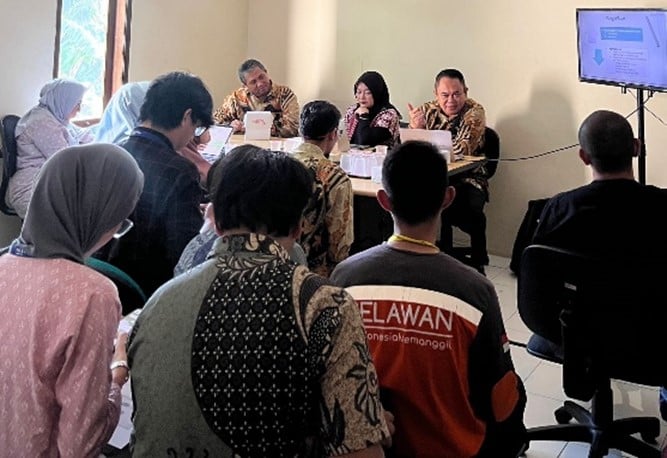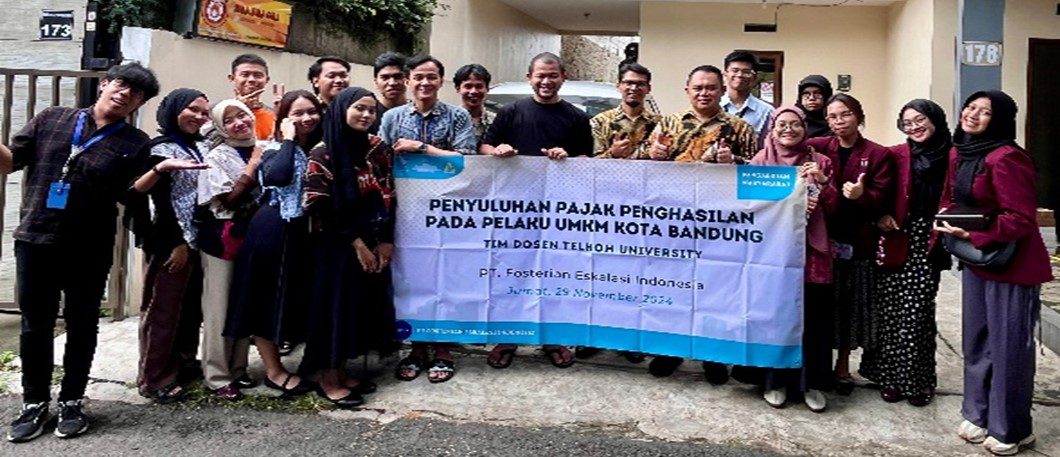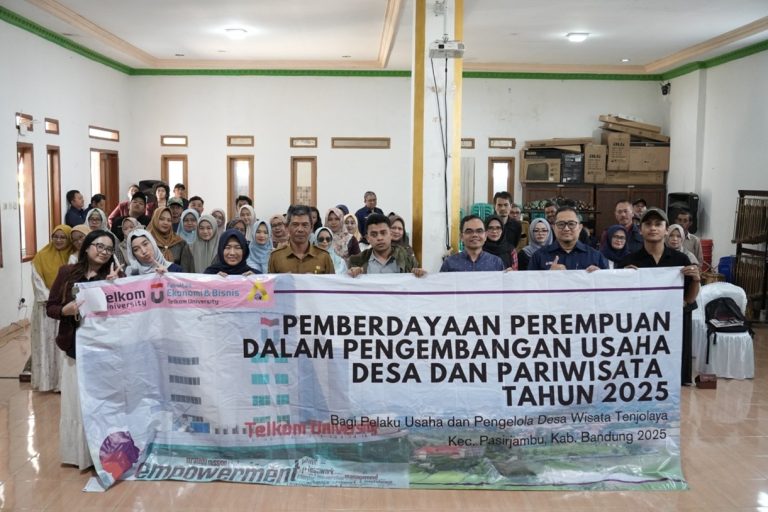The role of Micro, Small and Medium Enterprises (MSMEs) is very important and strategic (Aliyah, 2022; Hidayat & Latifah, 2022; Sofyan, 2017; Vinatra, 2023). According to data from the Ministry of Cooperatives and SMEs, the number of MSMEs in Indonesia in 2021 reached 64.2 million business units, which contributed 61.7% (Damayanti, 2024) to the Gross Domestic Product (GDP) and absorbed 97% of the total national workforce. Based on data collected by Open Data Jabar, in 2021 the total number of MSMEs in Bandung City was 464,346 units (Dinas Koperasi dan Usaha Kecil, 2021). However, despite their huge contribution and potential, MSMEs also face various problems and obstacles that hinder their business development. One of the problems often faced by MSMEs is related to taxation aspects (Editorial DDTCNews, n.d.). Income tax (PPh) is one of the obligations that must be fulfilled by every taxpayer, including Micro, small and medium enterprises (MSMEs). However, a large number of MSME players still face difficulties in calculating and reporting income tax in accordance with applicable regulations.
 According to the Minister of Cooperatives and SMEs, Teten Masduki, the tax contribution of MSMEs is still very low to national tax revenue (Catriana & Sukmana, 2021). As of 2021, KemenkopUKM has recorded 64.2 million MSME players throughout Indonesia with a contribution to Gross Domestic Product (GDP) of 61.07% or IDR 8,573.89 Trillion (Ministry of Finance of the Republic of Indonesia, 2021). However, of the 64.2 million MSME players, only 2.3 million MSMEs have an NPWP. In fact, of the MSMEs that already have an NPWP, not all of them routinely fulfill their tax payment obligations (Nurhidayah, 2021). The main factor causing this is the lack of understanding of MSME actors of tax facilities and obligations, especially since most of the actors come from generation X (Santika, 2023). The low access of MSME actors to tax information and technical assistance, both from the government, business associations, and tax consultants and the difficulty of MSME actors in conducting tax administration and reporting due to limited human resources, capital, technology, and infrastructure are also the causes of low Income Tax revenues from MSME actors.
According to the Minister of Cooperatives and SMEs, Teten Masduki, the tax contribution of MSMEs is still very low to national tax revenue (Catriana & Sukmana, 2021). As of 2021, KemenkopUKM has recorded 64.2 million MSME players throughout Indonesia with a contribution to Gross Domestic Product (GDP) of 61.07% or IDR 8,573.89 Trillion (Ministry of Finance of the Republic of Indonesia, 2021). However, of the 64.2 million MSME players, only 2.3 million MSMEs have an NPWP. In fact, of the MSMEs that already have an NPWP, not all of them routinely fulfill their tax payment obligations (Nurhidayah, 2021). The main factor causing this is the lack of understanding of MSME actors of tax facilities and obligations, especially since most of the actors come from generation X (Santika, 2023). The low access of MSME actors to tax information and technical assistance, both from the government, business associations, and tax consultants and the difficulty of MSME actors in conducting tax administration and reporting due to limited human resources, capital, technology, and infrastructure are also the causes of low Income Tax revenues from MSME actors.
Based on the findings of Alfin Amrullah et al. (2021), taxpayer compliance increases significantly when taxpayer awareness is disclosed. According to Mudiarti & Mulyani (2020), tax understanding is the taxpayer’s effort to understand the rules of taxation. Taxpayers who have an understanding of the tax incentive policy, especially for MSME players, will take advantage of and find out the procedures for obtaining tax incentives. Riyanto et al., (2020) and Putra, (2020) argue that taxpayer compliance is influenced by the tax knowledge possessed by the taxpayer himself. Therefore, as an effort to overcome these problems, income tax counseling was held with the theme of simple calculation of income tax for MSME players in Bandung City.
The community service carried out is by counseling and training, namely providing knowledge and understanding of income tax literacy so as to provide added value to MSME players in Bandung City. This service was organized by lecturers of the Faculty of Economics & Business – Telkom University, namely Muhamad Muslih, SE, MM. CSRA. MOS, Kurnia, S.AB., MM, and Wahdan Arum Inawati, SE., M.Ak on Friday, November 29, 2024. This counseling began with the presence of pre-test work on 10 questions to measure how far the knowledge of PT. Fosterian Escalation Indonesia regarding income tax. After completing the questions, the participants received a presentation on “Simple Calculation of Income Tax (PPh) for MSME players in Bandung”. To measure the success of the implementation of socialization and mentoring this time, the participants were required to fill out a questionnaire again at the end of the material presentation (post-test) using the same questions. The delivery method was delivered interactively so that the employees of PT. Fosterian Escalation Indonesia can better understand the material presented. Each material presentation ended with a question and answer session so that participants could ask if there was still material that could not be understood. At the end of the event, a questionnaire was also given to participants regarding the benefits obtained after attending the training. The measure of success of this program is the increase in knowledge and understanding of counseling participants about taxation, especially about the simple calculation of income tax for MSMEs.



